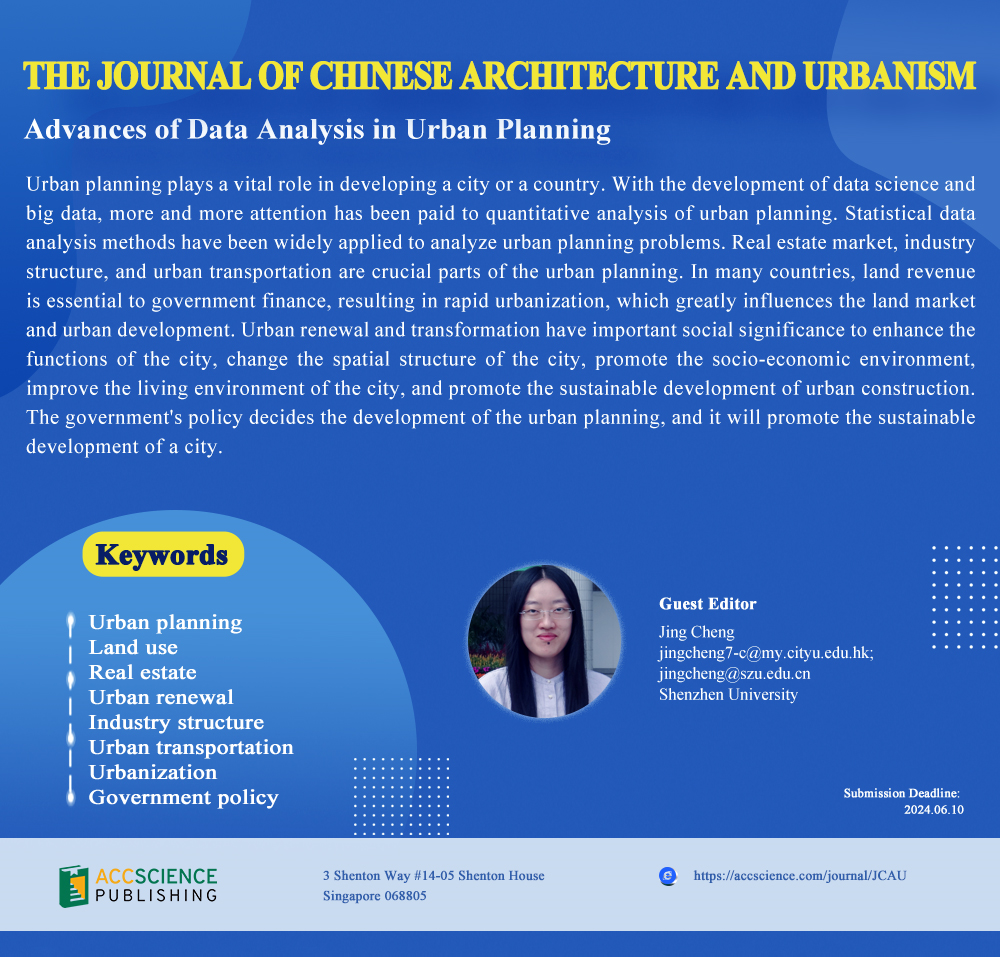
Urban planning plays a vital role in developing a city or a country. With the development of data science and big data, more and more attention has been paid to quantitative analysis of urban planning. Statistical data analysis methods have been widely applied to analyze urban planning problems. Real estate market, industry structure, and urban transportation are crucial parts of the urban planning. In many countries, land revenue is essential to government finance, resulting in rapid urbanization, which greatly influences the land market and urban development. Urban renewal and transformation have important social significance to enhance the functions of the city, change the spatial structure of the city, promote the socio-economic environment, improve the living environment of the city, and promote the sustainable development of urban construction. The government's policy decides the development of the urban planning, and it will promote the sustainable development of a city.
Design and implementation of the Beijing Road Traffic Environmental Monitoring Information Platform: A stakeholder’s perspective


